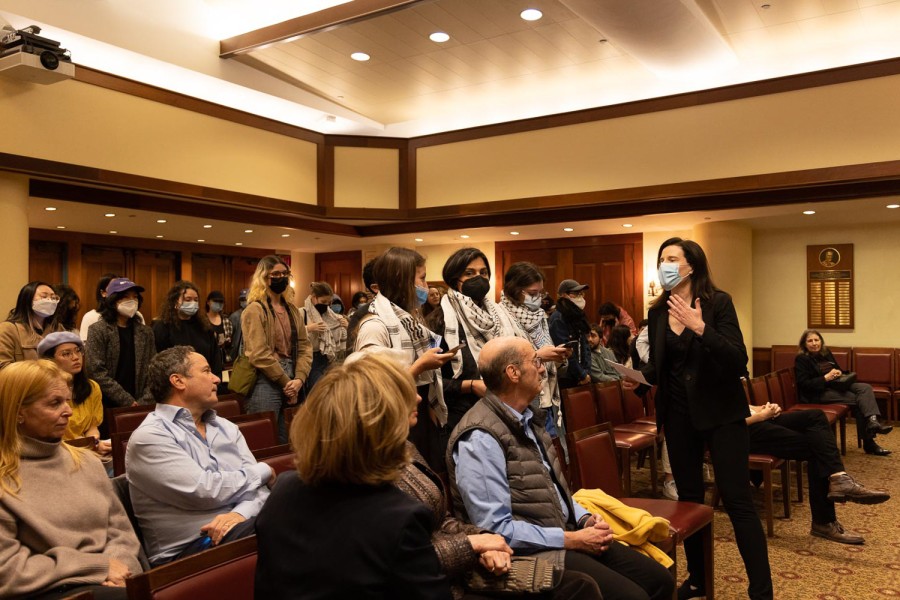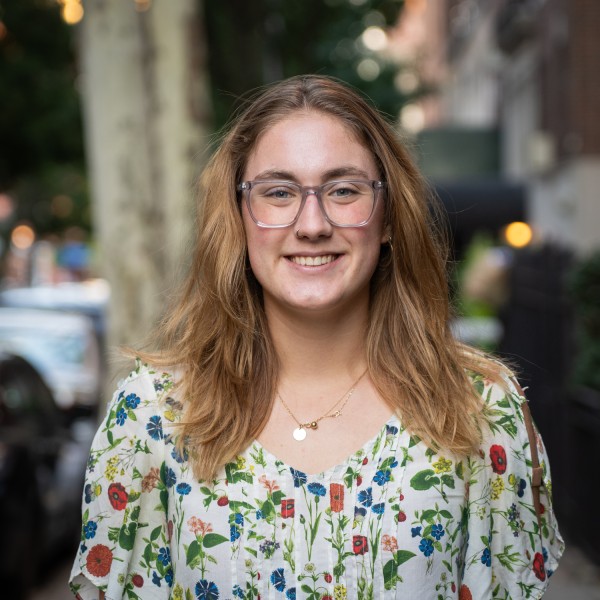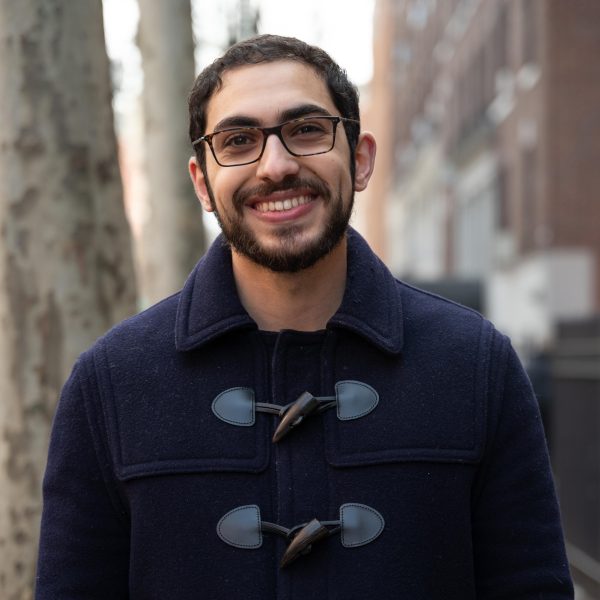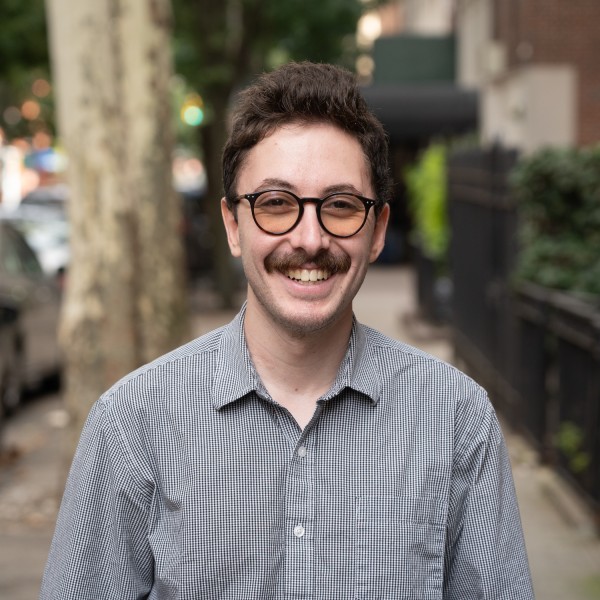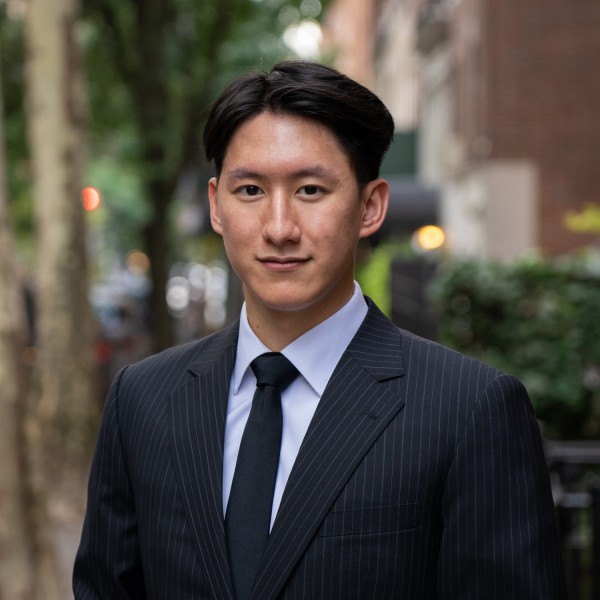NYU Law dean confronts protesters for heckling Israeli politician
Dozens of pro-Palestine students protested an event hosted at NYU Law last Thursday that featured an Israeli politician.
NYU Law hosted a conversation with Michal Cotler-Wunsh on Apr. 20. (Danny Arensberg for WSN)
April 24, 2023
Only minutes after Israeli politician Michal Cotler-Wunsh took the stage at an NYU School of Law event Thursday evening, dozens of students stood up in protest, shouting “occupation is a crime” and “Palestine will be free.”
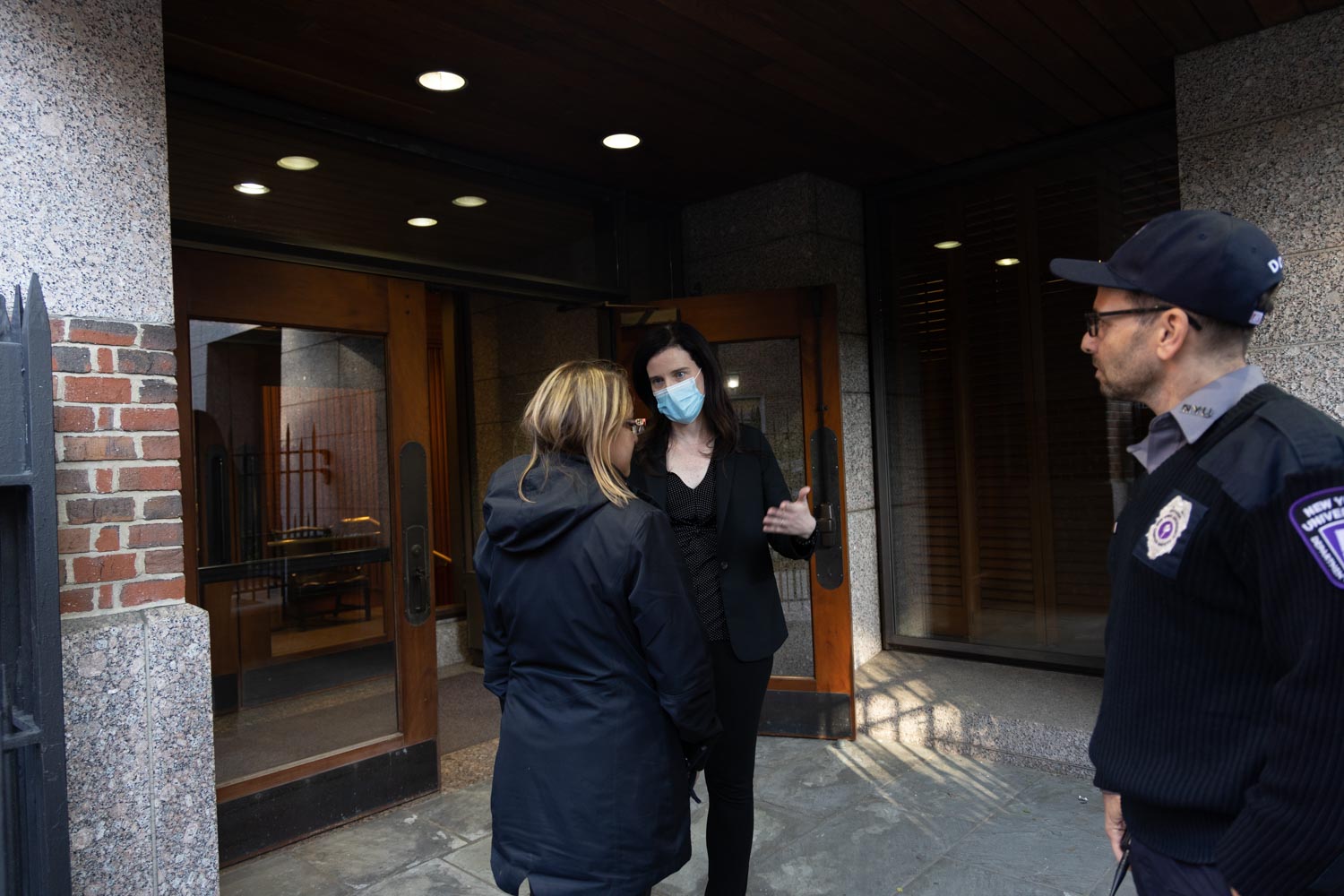
Megan McDermott, an assistant dean at the law school, stood up and confronted the protesting students, who filed out of the room.
“The principles of free speech and inquiry are complemented by debate, challenge and protest,” McDermott said, speaking to the protesters and the audience. “While dissent may be vigorous, it must not interfere with the speaker’s ability to communicate — which is exactly why, should those interrupters not have left on their own accord, they would be subject to discipline.”
The law school was hosting an event titled “Antisemitism: An Assault on Human Rights and Our Shared Humanity” with Cotler-Wunsh on April 20. On-campus advocacy groups Law Students for Justice in Palestine and Jewish Law Students for a Free Palestine had previously called for the talk to be canceled, in separate statements to the school’s dean, Troy McKenzie. Both letters criticized Cotler-Wunsh for her support of Israel’s occupation of Palestine.
The event was a conversation between Cotler-Wunsh, a former member of the Israeli legislature, and international law professor Robert Howse. The NYU Law Dean’s Office, the university’s President’s Office and the Bronfman Center for Jewish Life co-hosted the event alongside NYU’s Jewish Law Students Association, a student group that is affiliated with the university’s Bronfman Center for Jewish Student Life.
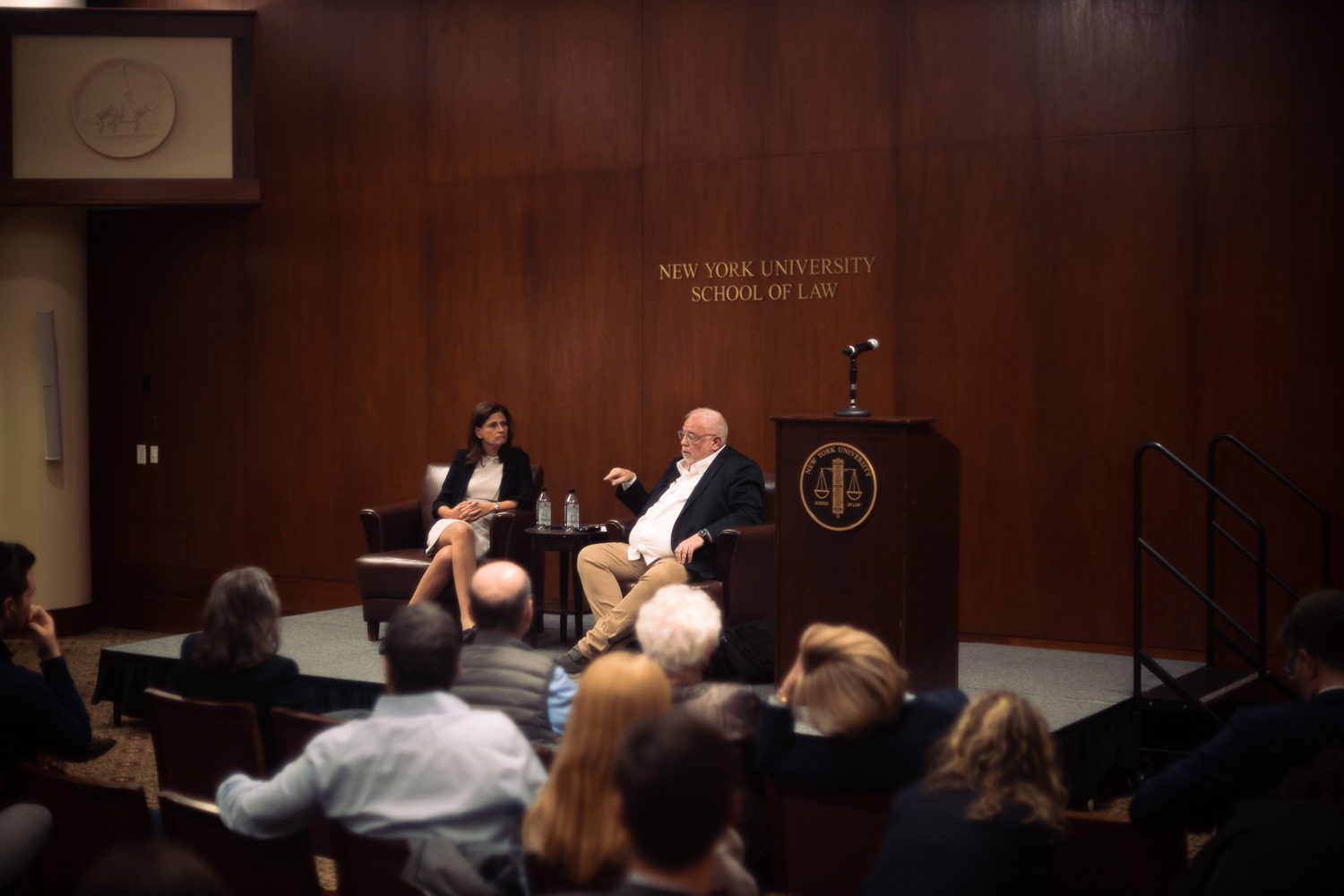
Emmaia Gelman, an NYU alum who was also formerly an adjunct professor, participated in the protest and said that as a Jewish person, she felt obligated to join Law Students for Justice in Palestine in protesting the event.
“The work that has been happening at NYU to oppose the administration’s embrace of the Israeli state’s effort to use anti-racist language to cover its ethnic cleansing and colonial violence has been really important,” Gelman said. “It was a no-brainer to join.”
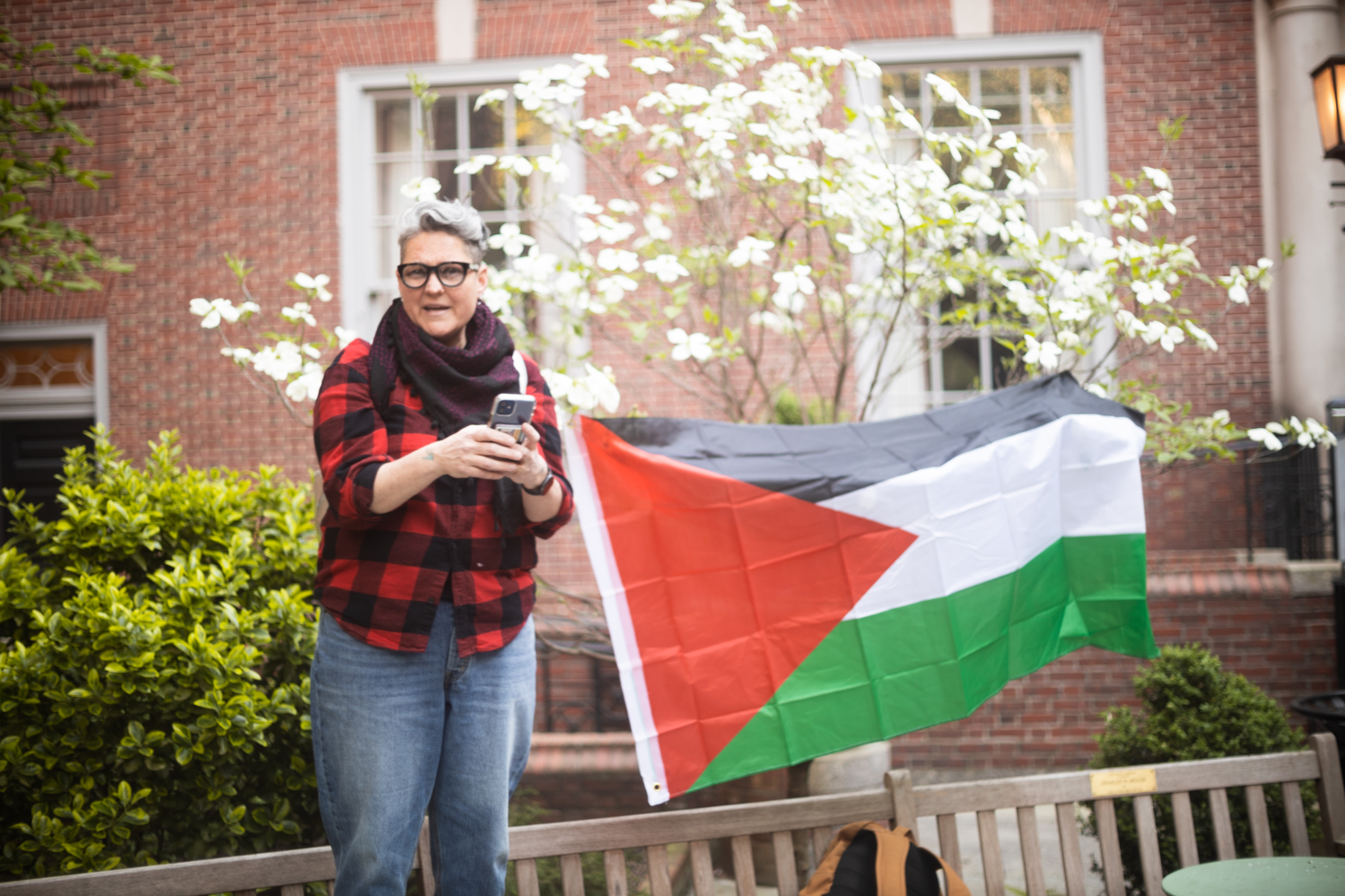
Rafael Jacobs, a first-year at NYU Law and chair of Law Students Against Anti-Semitism, said he was intimidated and afraid when he saw students protesting the event.
“It felt very helpless to see my classmates and people who don’t know anything about me shout such vitriolic statements in my direction,” Jacobs said. “What’s most hurtful about this is this was an event about combating antisemitism, and I was denied the opportunity to learn about it because of students bearing a resentment toward me before ever getting to know me.”
“ZIONISTS NOT WELCOME” had previously been written in chalk in front of the law school building. After walking out, protesters exited the building and marched toward the Vanderbilt courtyard to host a teach-in about Palestine and the Boycott, Divestment, and Sanctions movement against Israel. A lecture attendee attempted to scrub the message away shortly afterward. Following the protest, Cotler-Wunsch said that the protesters should have given her the opportunity to speak before criticizing her beliefs.
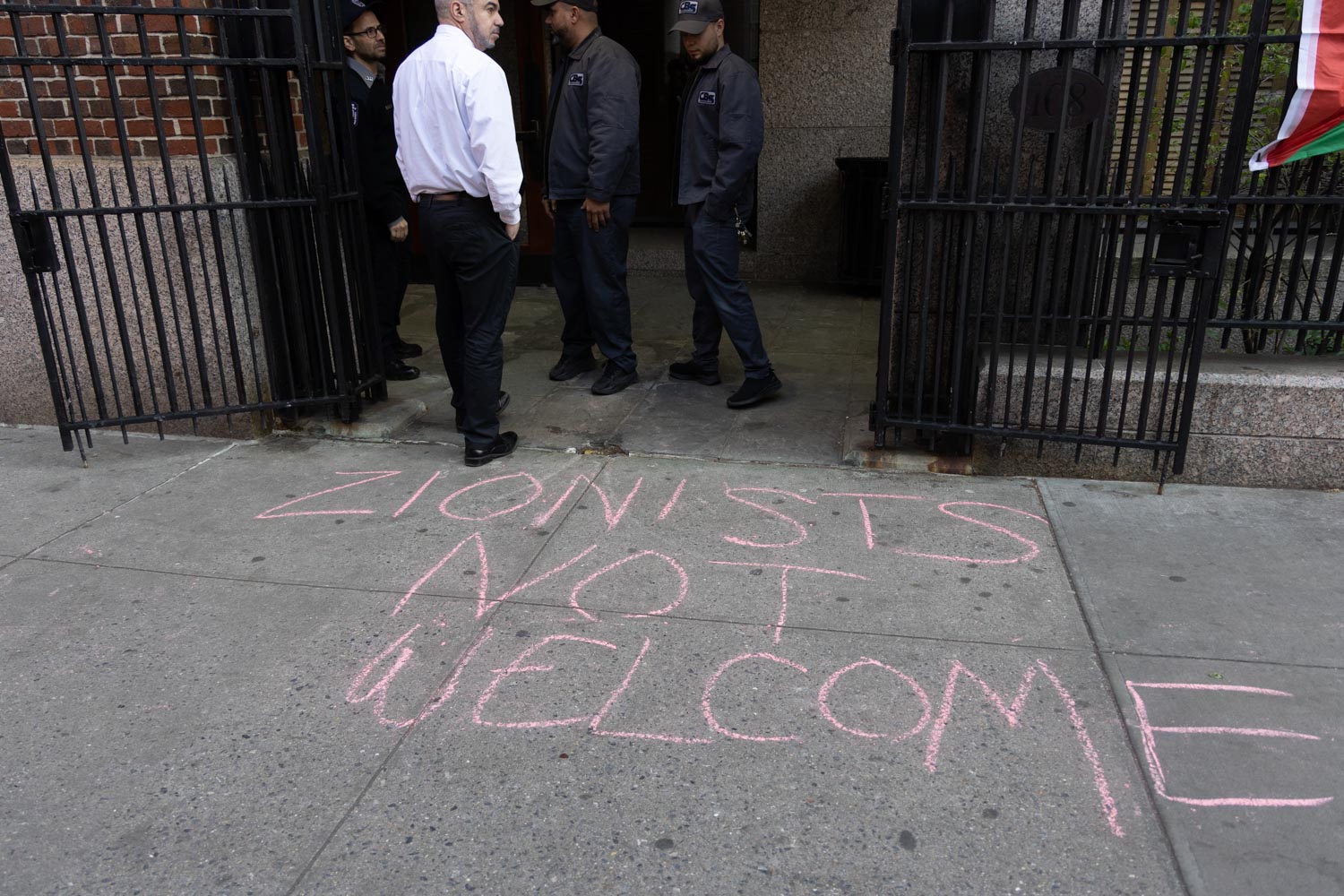
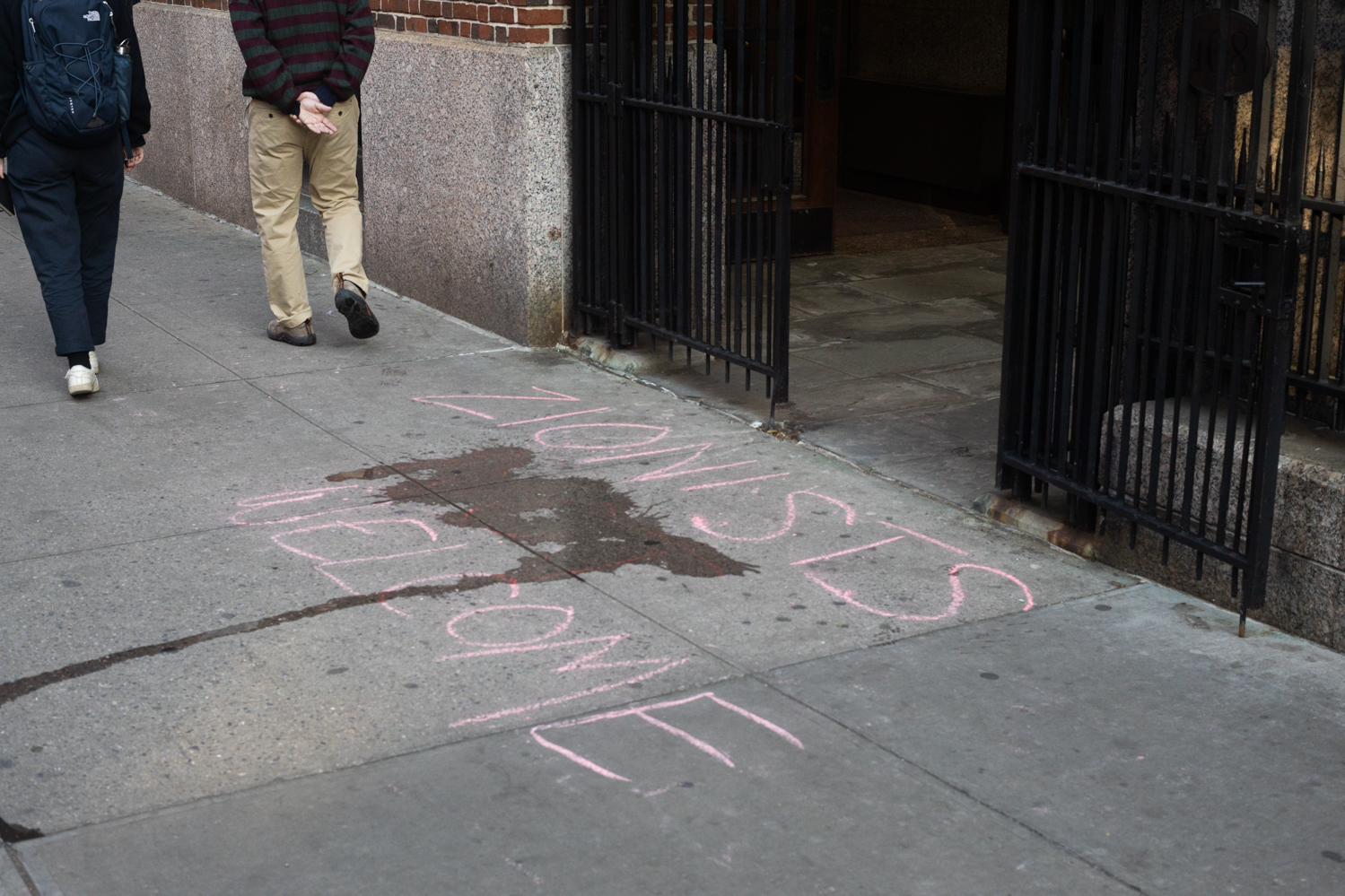
“It hampers not only my free speech, but your freedom to hear what I was going to say,” Cotler-Wunsh said. “If Zionism is racism, then who would want to listen to a racist? If Israel is an apartheid state, then who would want to listen to anybody who has anything to do with that apartheid state?”
In a statement on Friday, NYU spokesperson John Beckman called the protest a “regrettable disruption,” and said that participants had violated university policy. The university’s guidelines regarding protest and dissent state that while NYU supports students’ right to protest, any demonstrations must not interfere with the speaker’s freedom of expression, or disrupt the audience’s ability to listen.
“The university also flatly rejects the sentiment chalked outside the event’s venue that asserted that ‘Zionists are not welcome,’” Beckman said in the statement. “It is untrue, wrong as a matter of principle, and at odds with NYU’s academic and community commitments.”
After a series of antisemitic incidents on campus between 2017 and 2019, NYU came to an agreement with the U.S. Department of Education, agreeing to change the way in which it addresses antisemitism on campus. The university’s non-discrimination and harassment policy was altered to prohibit discrimination on the basis of shared ancestry and ethnic characteristics, including antisemitic behavior.
Last March, two representatives from NYU’s student government put forward a resolution that called on the university to close NYU’s Tel Aviv study abroad campus due to an Israeli government policy banning non-citizens who have advocated for a boycott of Israel from entering the country. Beckman criticized the proposal in a letter published in WSN, saying that it went against the university’s commitment to the free exchange of ideas and academic freedom.
Cotler-Wunsch’s speaking engagement was part of a weeklong tour of East Coast law schools, including Columbia University, Yale University, the City University of New York and Rutgers University, during which she faced backlash from other student groups.
Ahead of the Columbia event, the student group Columbia Law Students for Palestine issued a statement warning students against attending, saying that the event would “spread misinformation.”
Debates over whether students should protest guest speakers on college campuses have spread to other universities, too. In March, a similar incident took place at a Stanford Law School lecture featuring Stuart Kyle Duncan, a federal appeals court judge appointed by President Donald Trump. Duncan was heckled and criticized by students for his conservative political views, and, after the event, Stanford Law School dean Jenny Martinez condemned the students, saying that the First Amendment doesn’t provide protesters with a “heckler’s veto.”
Last month, law student organizations on campus adopted bylaws pledging not to invite speakers or panelists who support or participate in particular views and policies, including the occupation of Palestine, the prison-industrial complex and the war industry. The bylaws, co-authored by the LSJP and NYU’s chapter of the National Lawyers Guild, were published in solidarity with student groups at the University of California, Berkeley, who adopted a similar bylaw banning speakers who support Zionism or right-wing Israeli policies.
In an April statement, Beckman said that the university was “concerned and disappointed” by the bylaws and encouraged student groups to reconsider adopting them.
Other on-campus student organizations — including the Law & Political Economy Association, Law Students for Economic Justice and the Immigrant Rights Project — also signed the bylaws.
In April 2022, members of LSJP issued a statement condemning other law students, the law school’s administration, and right-wing media outlets for targeting individuals who have criticized the Israeli military. Some students and administrators accused the group of using antisemitic tropes and defending a shooting of Israeli citizens in the statement. At the time, the military had attacked Palestinian worshippers during Ramadan at Al-Aqsa Mosque, which happened again this year.
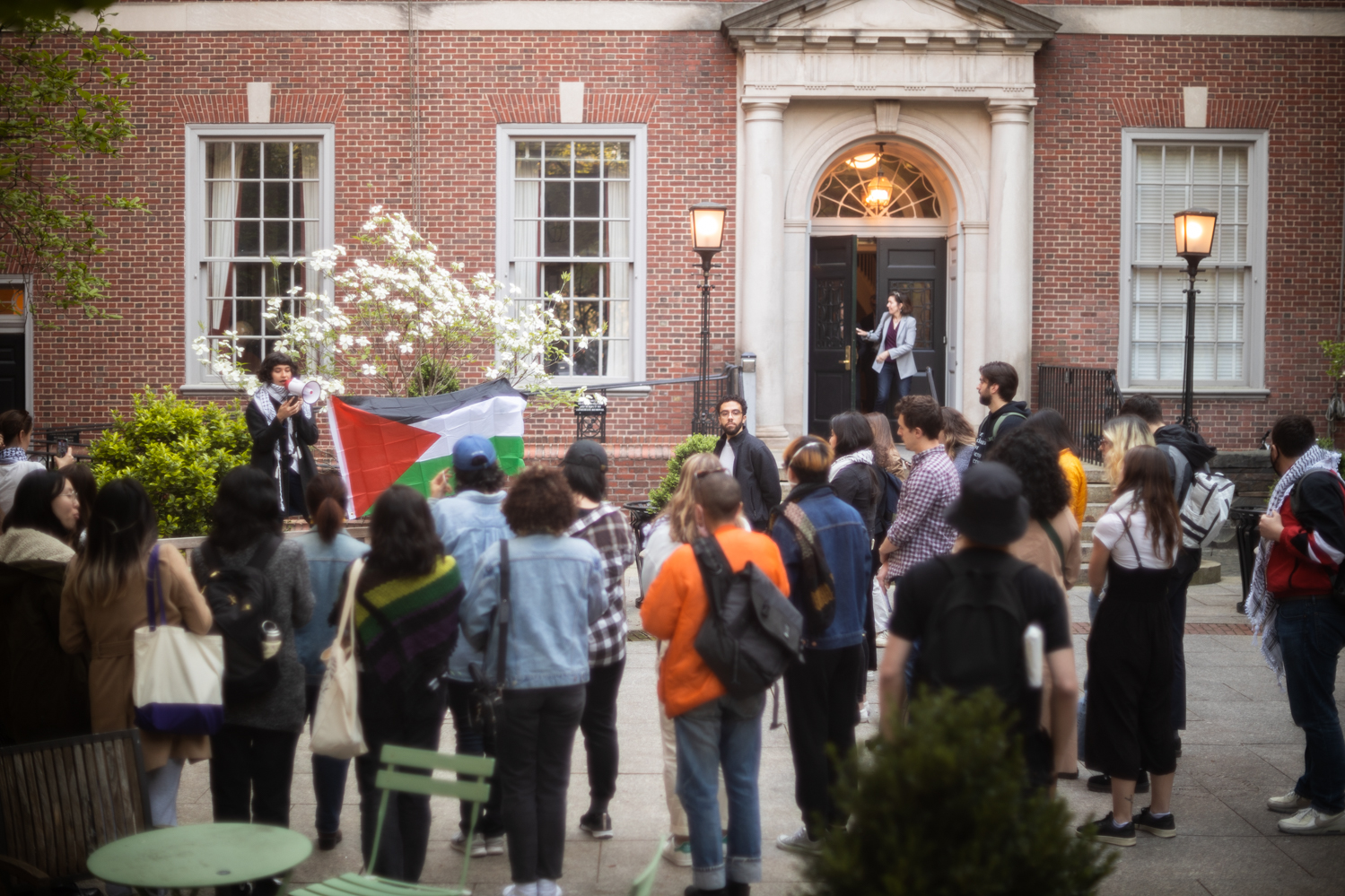
Kat Cui, a second-year at NYU Law and member of LSJP who participated in the event, said that she disagreed with the university’s responses to both the bylaws and the protest.
“I don’t think that student groups making decisions about their own platforming affects the ‘free exchange of ideas,’” Cui said. “We had so many sections in this bylaw, and the only thing that they’re pointing out as questionable or disappointing is the Israeli-Palestinian conflict point.”
Correction, April 24: A previous version of this article incorrectly identified and misquoted the administrator who confronted the group of protesters. It also incorrectly stated that the message written in chalk outside of the law school was written after the protesters had exited the event. The event was also incorrectly classified as part of an event series, when it was a stand-alone event. Photograph captions embedded in the article also referred to the teach-in as a walkout. The article has been updated to reflect the corrections and WSN regrets the errors.
Contact Ania Keenan at [email protected]
Contact Yezen Saadah at [email protected]























































































































































